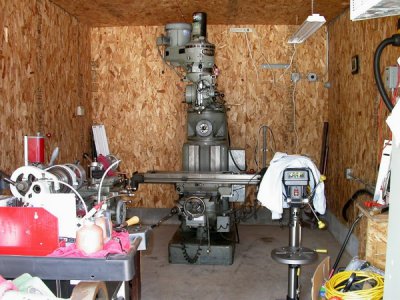- Joined
- Apr 28, 2014
- Messages
- 3,590
What say we start a helpful hints thread.
I've got a 24'x24' detached garage that is my shop. I have never battled rust and corrosion like I've had to since we moved here a year and a half ago.
This is my third location in TN in 15 years and I've never had this amount of rust and problems.
From machinery to tooling, seems like every time I turn around another piece has rust on it.
I'm wondering what tips and tricks other use to keep this nemesis at bay.
Thanks,
_Dan
I've got a 24'x24' detached garage that is my shop. I have never battled rust and corrosion like I've had to since we moved here a year and a half ago.
This is my third location in TN in 15 years and I've never had this amount of rust and problems.
From machinery to tooling, seems like every time I turn around another piece has rust on it.
I'm wondering what tips and tricks other use to keep this nemesis at bay.
Thanks,
_Dan


